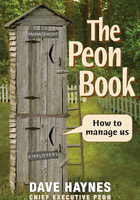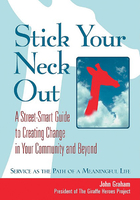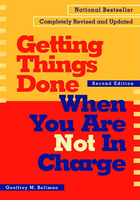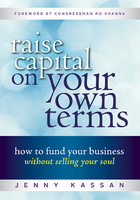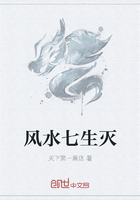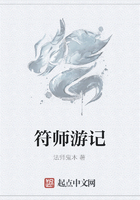Creating Cultures that Do the Right Thing
INTELLIGENT DISOBEDIENCE IS ABOUT finding the healthy balance for living in a system with rules and authorities while maintaining our own responsibility for the actions we take.
In recent years, a school of thought emerged regarding different types of intelligence. Knowing when and how to obey or disobey authority can be considered a form of intelligence that incorporates both interpersonal skills and moral grounding.
Obedience is often a reflex, not a rational decision. There is a primal instinct to obey authority, reinforced by a steep price for violating social norms. Reflexive rather than thinking obedience sooner or later leads to poor or damaging outcomes.
The project of this book is to examine how to change that reflexive habit into a conscious choice of whether to obey or to dissent in a specific situation. On a larger scale, its aspiration is to encourage the culture to embrace Intelligent Disobedience as a valued aspect of one's identity and an antidote to authoritarianism.
Nearly daily, we find stories in the media of individuals and whole departments who went along with programs or orders that came from higher levels in-or outside their organization that defy common sense, our values as a people, or the law of the land.
No segment of our culture is immune, from politics to sports, from federal agencies to religious institutions, from the education system to law enforcement, from health care to transportation, from food production and distribution to communications, from the military to financial services, from energy to social services.
You've read these stories or seen them in the media and, like me, wondered, How could they have done that? The question now is How do we change this?
Change will be achieved by teaching and rewarding the skills to differentiate between programs or orders that should be embraced and those that should be questioned, examined, and at times resisted. The capacity to do this should be an integral part of risk management strategies, which exist in all sectors.
If we distill Intelligent Disobedience down to a formula, it would look something like this:
1. Understand the mission of the organization or group, the goals of the activity of which you are a part, and the values that guide how to achieve those goals.
2. When you receive an order that does not seem appropriate to the mission, goals, and values, clarify the order as needed, then pause to further examine the problem with it, whether that involves its safety, effectiveness, cultural sensitivity, legality, morality, or common decency.
3. Make a conscious choice whether to comply with the order or to resist it and offer an acceptable alternative when there is one.
4. Assume personal accountability for your choice, recognizing that if you obey the order, you are still accountable regardless of who issued the order.
Formulas give us a sense of where we are going but are not sufficient to transform deeply seated cultural patterns. Transformation requires first understanding the powerful social mechanisms that produce and reward obedience, regardless of the merit or lack of merit in what is being obeyed. Then strategies and tools for overriding these mechanisms and retaining independence of thought and action are needed.
I did not start writing this book because I had the answers for how to do this. I began writing because I wanted to learn more about the answers. That requires a journey. When an author embarks on such a journey, in a sense the author is in service to the book. As the book unfolds, it insists the author look more deeply into the matters under investigation.
The author can report a symptom, but the book demands to know what is the underlying disease? The author can identify the disease and the book insists on knowing what caused it? What are its triggers? The author digs deeper and identifies causes for the disease and the book says, now what? Are there cures for this disease? If so, please share them with the reader. If not, how can we manage the disease until a cure is found? What are lines of investigation the reader and other researchers can follow to develop better ways of managing and ultimately curing the disease?
This book has taken me on such a journey. Professionally, I work as a consultant and a coach to adults who make our government agencies, armed services, corporations, professional service firms, nonprofit associations, and universities run. I have seen these organizations from the bottom and from the top. I know the pressures that exist at different levels and the difficult choices that have to be made about what is the right thing to do in different situations.
I could have written this book to solely address these professional environments. The reader would have recognized the book as a work about organizational behavior and ethical and operational choices. But if I left the book at that level, we would have been examining the symptoms or, at best, the disease. We would not have explored the causes of the condition and the remedies for those causes.
Let me put it this way: no executive, manager, front-line worker, administrator, principal or teacher, officer or foot soldier sprang fully formed from Zeus's head. They-you-were raised in a family that was embedded in a culture, and each family, culture, and subculture within that culture developed ways of socializing its young, including you.
In contemporary society, socialization occurs most intensively in a formal school setting. If we include preschool and kindergarten, most of us spend nearly two hundred days a year for at least fourteen years in a system that is not only expected to educate us, but requires us to recognize and obey the authorities and rules of the system. When behavior shows up in our adult life at work, in the military, in our citizenship, it has been shaped to some degree by social forces that run deep. This book is going to take you diving below the surface of your working world into these formative conditions. Why?
There are at least three compelling reasons for you to accompany me on this journey. First, it is the intention of this book to help you as an individual alter some of the conditioning that is not serving you or your workplace well; it is difficult to do this without understanding the nature of the forces that are holding existing behaviors of obedience in place.
Second, if you are an executive, manager, supervisor, officer, minister, teacher, or anyone with others in your care, and you want to create an environment in which individuals hold themselves personally accountable for doing the right thing, you need to understand the underlying, shaping forces working against this in order to transform those forces.
Third, you are not only your professional role. You are a whole person. I am writing to the whole person. You may have, or expect to have children, or you may be an aunt or uncle, a mentor, a coach, or otherwise a steward of the next generation. How are those children being raised? Will the meta-messages they are getting in the current system equip them to be strong adults who can take difficult stands and to be strong citizens who can protect the values of our culture? You cannot "outsource" their moral development to the formal education process or even to the religious education process. You are part of their moral development, and you are their advocate in the system to which you entrust their development.
I am asking you to join me in an inquiry. We will:
Look at the cultural forces that implicitly and explicitly value obedience over the higher level skill of discerning when it is and is not right to obey
Glean scarce but useful lessons from education and training that support knowing when and how to intelligently disobey
Examine critical research on reducing the pressure for individuals to conform and obey when they should not
Look at cautionary examples of individuals who obeyed when they should not have and the price they paid for doing so
Learn from uplifting examples of individuals who did the right thing when told to do the wrong thing
Meet wise and accomplished leaders who have developed the capacity to do the right thing in those whom they serve
Consider how the attributes of Intelligent Disobedience are central to a culture that values accountability, human dignity, and creative innovation
This book will flow among different levels of our lives-our work lives, our education lives, our home lives, back to our work lives. Understanding appropriate obedience and Intelligent Disobedience at each level will reinforce our capacity to create the right balance between these at the other levels. Throughout the journey, the image of the guide dog will accompany us, utterly devoted to obeying when doing so serves the common good and to disobeying when doing so prevents avoidable harm. We will look closely at the "secret sauce" that goes into guide dog training and distill what of this can be transferred to human development and cultural change.
There is one cautionary note I must make, though I find doing so painful. In the United States, and undoubtedly in other countries, the dominant culture is given more leeway to disobey than are others. As we have seen far too often in the United States, when people of color, and especially young men of color, even hesitate momentarily to obey, they can pay a very steep price at the hands of those with authority, especially when that authority is armed. I caution anyone reading this book to be mindful of unwritten cultural norms and factor those into your decisions on when to obey and when and how to intelligently disobey.
Although this book explores the social roots of obedience, it is primarily a book intended for application. I am not generally a fan of distilling complex dynamics to actionable bullet points. I have nevertheless done so at the end of each chapter to aid application. In many of the chapters, the research and lessons examined contain too many riches to easily retain in one reading. Rather than risk letting them be lost, I chose to risk oversimplifying them. The task falls to you to integrate these summaries meaningfully into your thinking and actions.
You now have a map for the journey you will be taking from the workplace to the school room to the dinner table, back to the workplace, and ultimately to the responsibilities of a free citizenry. Let's start the inquiry by looking at a concrete example. It is critical to take this material out of the theoretical and the ideal into the hard realities of the world in which they play out-in other words into your world.

